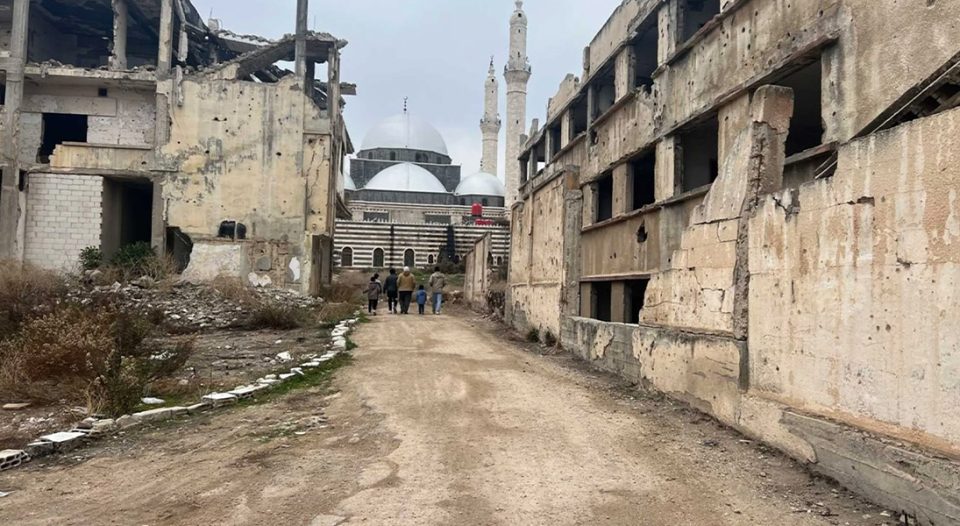Weeks after the fall of Syrian dictator Bashar al-Assad in early Dec. 2024, the Lutheran World Federation (LWF) country program visited Damascus to meet with partners and plan humanitarian efforts. The most urgent needs remain essential services such as electricity, sanitation and healthcare.
“It was good to see Syria alive again,” said Ameera Khamees, LWF country director for Jordan-Syria. “People are out in the streets, cars are moving, and you can buy fuel and bread again. On our last visits, long queues for bread were the norm. Now, it feels like a different place.”
The people I spoke with seemed more relaxed and hopeful. There was excitement about this sudden change but also concerns about the future. It’s a new government, and many pressing needs still must be addressed.”
Hope and trauma
LWF has been providing humanitarian aid in Syria for many years. The team was responding to the series of devastating earthquakes in 2024. Since then, they have distributed food and solar power sets to families, a crucial intervention given that in many areas, people only have electricity for a few hours per day.
Many challenges persist after the change in government. Many buildings are still destroyed. Many children do not have access to education. LWF continues to support 40 schools, providing solar energy, repairing sanitation and fixing broken windows. There are also ongoing challenges in health care.
“It’s a new government, and many pressing needs still must be addressed.”
LWF’s local partners operate several health centers, where the team facilitates essential medical services, including dialysis, surgery and basic treatments. Beyond physical health, there is a growing need for trauma care and psychosocial support, Khamees explained.
“Children have suffered deeply from the war,” she said. “They have lost parents or witnessed violence. There are cases of early marriage, child labor and prolonged absence from school. Families are in dire economic and social situations. Women who lost their husbands now find themselves as the sole providers for their families.”
She also highlighted another vulnerable group: prisoners who have been recently released. “Many of them need both medical treatment and psychological support. We are dealing with the full scope of mental health challenges in a post-conflict society.”
“We stand with them”
Post-earthquake reconstruction in Syria was delayed due to ongoing fighting and access restrictions, but now, efforts can begin in affected northern communities to rebuild after both natural and human-made disasters.
LWF is committed to addressing these needs alongside its local ecumenical partners from Catholic and Orthodox churches. “We have been in Syria for years,” Khamees said. “We were there during the earthquake, we responded to the Lebanon war and we were in Aleppo when al-Assad fell. We understand the local communities. We stand with the Syrian people, and we will continue to do our best to support them.”
This story originally appeared at lutheranworld.org.




